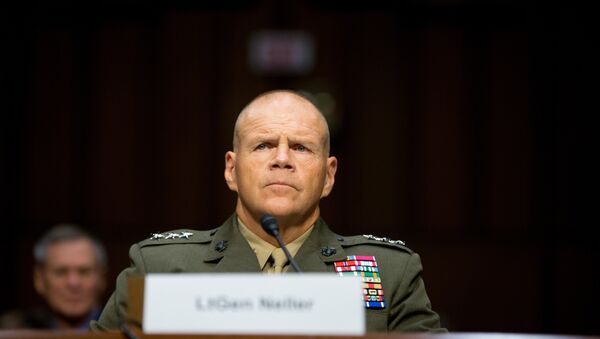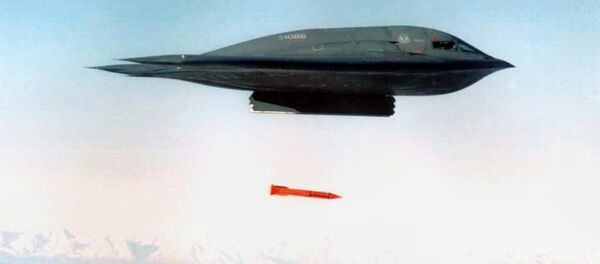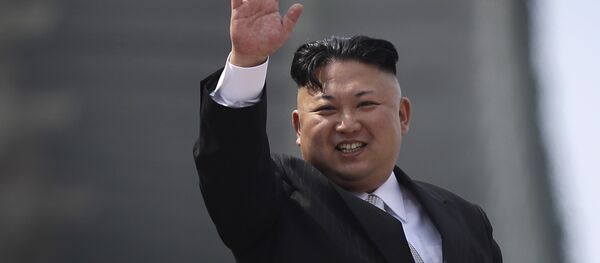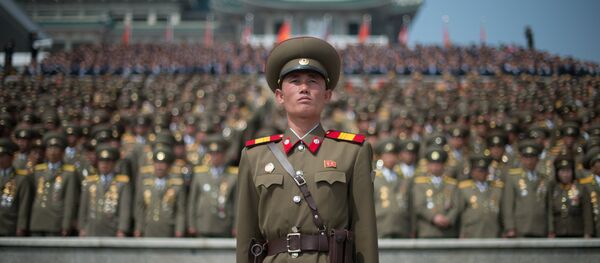During an appearance before the Center for Strategic and International Studies (CSIS), Neller said "I think the biggest thing everybody's done is just look at, get familiar with the geography, get familiar with the plans and do some logistical preparation — that's just prudent."
The commandant did not pull any punches in his description of a second Korean War: "It will be a very, very kinetic, physical, violent fight over some really, really tough ground and everybody is going to have to be mentally prepared."
As with many American leaders, including Defense Secretary James Mattis, Neller stressed that Washington was prioritizing a diplomatic solution to the crisis on the Korean Peninsula. But he also said that the leaders of the US forces in South Korea, US Forces Korea Commander Gen. Vincent Brooks and US Pacific Commander Adm. Harry Harris, have "done a very good job" in preparing US forces for battle with frequent military exercises.
He added that the showcase of American military muscle happened to send a message to North Korean leader Kim Jong-un: "You don't want to do this. You really don't want to do this."
North and South Korea in January engaged in unusual high-level talks about reunification and the joint procession of their athletic teams at the coming Olympic ceremonies.
Neller also walked back controversial comments he made to Marines stationed in Norway, along NATO's eastern flank, where he told them to be ready for battle. "There's a war coming," Neller warned at the time. "A big-ass fight."
He did not mention who the Marines would be fighting, although one can speculate he may have meant Russia, which shares a border with Norway. Neller's comments in Scandinavia were gently rebuked by US President Donald Trump during a January 10 joint press conference with Norwegian Prime Minister Ema Solberg.
"Well, maybe [Neller] knows something that I don't know," Trump said. "No, I think we will have peace through strength. Our military will be stronger than it ever was in a very short period of time. That's my opinion. That's not the general's opinion, but I think my opinion counts more right now."
The general reframed his comments to CSIS as simply a statement that the Marines must always be ready for battle, not a prediction of imminent war in the near future. "I wasn't predicating. I wasn't saying it was going to happen. I hope it doesn't happen. I don't want it to happen. It would not be good for anybody," Neller said.
He added that he made his comments to the Marines to ensure that battle-readiness was something they kept in mind while deployed. "When they train, they have to keep in the back of their mind, they have to be [prepared] physically, mentally and always their spirit has to be steeled and ready for serious conflict that's going to test them beyond anything they have ever done in their lives, that was my only intent. And I'll say that as long as I'm in this office because that's my job."
A 42-year veteran of the US military, Neller was promoted to his current commandant position in 2015. Before the CSIS audience, he also pushed for a multiyear budget for the US military to allow for more reliable long-term planning.
"The problem that we had last year is we got the budget in April, so the delta [i.e. change] between what we had in the [continuing resolution] from the previous fiscal year and what we got in the budget was a pretty substantial amount of money — so then you find yourself like, okay, we've got to spend what we're spending, plus we've got to spend $30 million more every day to spend this money that we've got now with six months left to go, that if we could have got it at the beginning of the year, we could have spent it in a more logical pattern," Neller said.
He also pointed to these budgetary constraints as factors in a series of aerial accidents that led to the deaths of 20 marines in 2017, as Marine pilots were undertrained and underequipped. He added that one of the Corps' goals in 2018 was to increase flying hours per month to better season pilots and prevent additional accidents.






